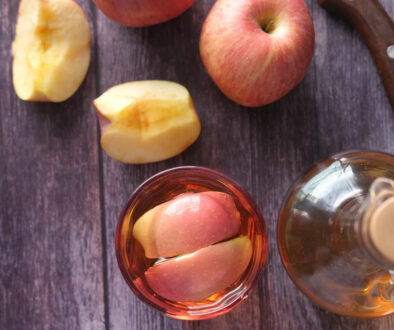Everything You Need to Know About Why You Are not Losing Weight
Do you want to lose weight but you feel like it’s just way too hard? You have to give up your favorite foods because they’re too fattening. Someone offers you a slice of pizza and you say “No, thanks! I’m on a diet” and then you watch them eat it when they’re not looking as you salivate and cry inside.
And then there’s your skinny friend. You order a salad while she gets a burger with fries and you start to kind of hate her. On top of that, she gets dessert. “Oh great, now you’re just rubbing it in my face,” you say inside your head. Your poor friend smiles at you, oblivious of this inner dialogue.
You try so hard to deprive yourself while she’s not even trying and she’s 10 pounds lighter than you. You conclude that she is just one of the lucky ones and you blame your failure on your lack of willpower. You start feeling hopeless. All you want is to look like your friend and eat your pizza or burger and fries, is that too much to ask?
If you can relate to the stories above, you are not alone.

Why you’re not losing weight even when you are trying so hard (Hint: It’s not your lack of willpower)
In the Minnesota Starvation Experiment[1], they studied the effects of prolonged semi-starvation and refeeding on men. The starvation made the men irritable, anxious, depressed, and unable to concentrate. Physical effects included lethargy, hair loss, dizziness, and low sex drive.
They became so obsessed with food that they binged on their rations, hoarded food, and even dreamed about it in their sleep. Once they were allowed to eat normally again, these men tended to overeat even though they were told not to.
Do you know what’s surprising? The number of calories they were allowed to eat during the starvation period is equivalent to the number of calories in most of the diets being promoted today. By going on diets, we’re putting our bodies in semi-starvation.
If you’ve ever experienced any of the symptoms mentioned above while on a diet, that’s your body’s natural response. That’s why it’s so hard for you to stick to diets and when you go off of it, you overeat, regaining back all the weight you lost plus more. Then you go on a diet again and this becomes a cycle. It’s not willpower, it’s just biology. Whoa, right?
1. Diet makes you gain weight
When we often put our bodies in semi-starvation, our bodies respond by holding on to fats in order to keep us alive. This is our body’s survival mechanism and it was very useful to our ancestors before, when food wasn’t readily available and they used to hunt for it. In modern times, we don’t have this problem anymore but our body’s adaptive response hasn’t changed at all.
When we go off these diets and refeed ourselves, the body stores more fat than if we never went on a diet. It’s like saving up for the winter, it hoards all the fats it can store because it’s not sure when it’s gonna be fed properly again.

RELATED: Top 8 Best Smart Scales to Track Your Fitness and Weight Loss Journey
2. Why you shouldn’t cut out your favorite foods
When people go on diets, they start labeling foods as good and bad, and bad ones are off limits. The ones with the worst reputation are processed junk foods, but there are other foods you must avoid as well depending on which diet you follow.
Low-fat diets tell you to avoid butter. In the Paleo diet, it’s grains and dairy. In the Keto diet, carbs are a big ‘no’. If you’re a pasta lover and you decide to go on the keto diet, you have to say goodbye to bolognese. Why would you torture yourself like that?
3. Forbidden fruit tastes the sweetest
“Diet starts tomorrow!” you say to yourself. So you eat clean, eat clean, you successfully resist the temptations. Then on the 8th day, you can’t resist it anymore so you binge on the cookies you’ve been trying so hard to avoid and you feel terrible. “Diet starts tomorrow”, you compensate by restricting yourself again.
The reason that cookie looks extra good is that you’re telling yourself that it’s forbidden. When I started giving myself permission to eat all kinds of foods, suddenly, the cookie wasn’t so special anymore. I still crave it sometimes but I don’t fantasize about it unlike before.
In a 2005 study[2], they found that women who were deprived of chocolate for a week experienced more cravings for chocolate and an increased consumption of chocolate after the deprivation period ended. These effects were significantly greater to women who were chronic dieters and these women didn’t only report more frequent cravings on chocolates but foods in general.
It’s not the food itself, it’s the deprivation that’s causing us to obsess and binge on the foods we deem forbidden. Isn’t that so liberating to hear? Go get yourself a cookie.
4. “But If I eat cookies, I’m gonna gain weight.”
That’s true but only if you eat too much of it. If you want to lose weight, it’s only smart not to eat too many processed foods like donuts and ice creams every day. But the same thing applies if you eat too many ‘clean foods’, food that are minimally processor or whole food like nuts, chicken, and brown rice.
It’s just easier to gain weight with processed foods because they’re less filling and highly palatable. Have you ever noticed how more filling a sweet potato is versus a donut?

The secret to weight loss (It doesn’t include eating clean)
A 2012 study monitored 122 women for 16 weeks[3]. They were put on low-calorie diets but half of them weren’t allowed to eat bread. Both groups lost the same amount of fat and there were more dropouts in the ‘no bread category (They want their bread). If clean eating (eating real or whole food) is the key to weight loss, why didn’t the ‘no bread group lose more weight?
The secret to weight loss is this: Calorie deficit. You have to be burning more calories than you’re consuming. It doesn’t matter how clean you eat. If you’re consuming 2500 calories of clean food every day versus 2000 calories of unhealthy food, you’ll still lose more weight with the unhealthy foods.
Before you roll your eyes at me, I’m not telling you to track your calories. Unless you’re getting paid to do so like professional bodybuilders, that is a really sad way to live. You deserve to enjoy your foods without having to list them down on your calorie counter app.

The trick to naturally reducing your calories
How do you make sure you’re consuming less without counting calories?
It’s really simple. I told you to make peace with all different kinds of foods but you also have to take note that foods have different amounts of calories and different effects on your hunger and energy levels.
Naturally, whole foods like vegetables have fewer calories than most foods. They contain lots of fiber so they get digested slowly, hence, keeping you full for longer and your energy levels stable, especially when paired with protein and fat. Processed foods are usually calorie-dense, aren’t very filling, and cause a rapid rise and fall in your energy levels.
Remember what the weight loss secret is? You have to consume fewer calories than you burn. Naturally, if whole foods dominate your diet, you’ll be consuming fewer calories and you’ll have more energy to move more than if you mostly eat calorie-dense processed foods.
If you want to lose weight, stop depriving yourself
Diet culture has been messing up our lives without us noticing. People spend years holding these false beliefs on weight loss, not knowing that restricting themselves only does the opposite of what they’re trying to attain and then blaming themselves for the failure of these diets.
I can hear your sigh of relief from here. You can finally stop depriving yourself because you already know that doing so is counterproductive. You don’t have to avoid parties because you’re afraid of being surrounded by so many ‘bad’ foods, you don’t have to suffer as you watch your friend take a bite of pizza, you don’t have to punish yourself for eating ice cream.
So, what will you have on your next meal? Whatever it is, I hope it satisfies you and you enjoy every bite!
References:
- Baker, D. B., & Keramidas, N. (2013, October). The psychology of hunger. Monitor on Psychology, 44(9). http://www.apa.org/monitor/2013/10/hunger
- J. Policy et al., “The effect of Deprivation on Food Cravings and Eating Behavior in Restrained and Unrestrained Eaters,” International Journal of Eating Disorders 38, no. 4 (2005): 301-9
- Loria-Kohen, V., Gómez-Candela, C., Fernández-Fernández, C., Pérez-Torres, A., García-Puig, J., & Bermejo, L. M. (2012). Evaluation of the usefulness of a low-calorie diet with or without bread in the treatment of overweight/obesity. Clinical nutrition (Edinburgh, Scotland), 31(4), 455–461. https://doi.org/10.1016/j.clnu.2011.12.002
Article by Breech Mae Valencia











